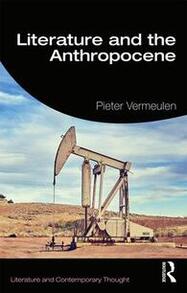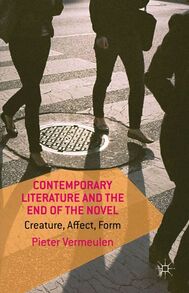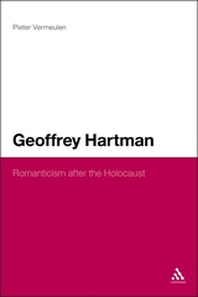Books

Literature and the Anthropocene. Routledge, 2020.
The Anthropocene has fundamentally changed the way we think about our relation to nonhuman life and to the planet. This book is the first to critically survey how the Anthropocene is enriching the study of literature and inspiring contemporary poetry and fiction. Engaging with topics such as genre, life, extinction, memory, infrastructure, energy, and the future, the book makes a compelling case for literature’s unique contribution to contemporary environmental thought. It pays attention to literature’s imaginative and narrative resources, and also to its appeal to the emotions and its relation to the material world. As the Anthropocene enjoins us to read the signals the planet is sending and to ponder the traces we leave on the Earth, it is also, this book argues, a literary problem.
Literature and the Anthropocene maps key debates and introduces the often difficult vocabulary for capturing the entanglement of human and nonhuman lives in an insightful way. Alternating between accessible discussions of prominent theories and concise readings of major works of Anthropocene literature, the book serves as an indispensable guide to this exciting new subfield for academics and students of literature and the environmental humanities.
The Anthropocene has fundamentally changed the way we think about our relation to nonhuman life and to the planet. This book is the first to critically survey how the Anthropocene is enriching the study of literature and inspiring contemporary poetry and fiction. Engaging with topics such as genre, life, extinction, memory, infrastructure, energy, and the future, the book makes a compelling case for literature’s unique contribution to contemporary environmental thought. It pays attention to literature’s imaginative and narrative resources, and also to its appeal to the emotions and its relation to the material world. As the Anthropocene enjoins us to read the signals the planet is sending and to ponder the traces we leave on the Earth, it is also, this book argues, a literary problem.
Literature and the Anthropocene maps key debates and introduces the often difficult vocabulary for capturing the entanglement of human and nonhuman lives in an insightful way. Alternating between accessible discussions of prominent theories and concise readings of major works of Anthropocene literature, the book serves as an indispensable guide to this exciting new subfield for academics and students of literature and the environmental humanities.

Contemporary Literature and the End of the Novel: Creature, Affect, Form. Palgrave Macmillan, 2015.
While rumors of the imminent death of the novel are everywhere, this book shows how some of our most significant twenty-first century writers mobilize the idea of the end of the novel to reimagine the ethics and politics of literature. Writers like J.M. Coetzee, Teju Cole, and Tom McCarthy disturb the emotional scenarios through which the novel form traditionally operates in order to figure unregimented forms of Life and affect. Contemporary Literature and the End of the Novel combines intense discussions of key contemporary works and of theories of the novel with original interventions in current critical and theoretical debates - about affect, the anthropocene, biopolitics, cosmopolitanism, and about the forms and functions of fiction after 9/11 and after postmodernism.
While rumors of the imminent death of the novel are everywhere, this book shows how some of our most significant twenty-first century writers mobilize the idea of the end of the novel to reimagine the ethics and politics of literature. Writers like J.M. Coetzee, Teju Cole, and Tom McCarthy disturb the emotional scenarios through which the novel form traditionally operates in order to figure unregimented forms of Life and affect. Contemporary Literature and the End of the Novel combines intense discussions of key contemporary works and of theories of the novel with original interventions in current critical and theoretical debates - about affect, the anthropocene, biopolitics, cosmopolitanism, and about the forms and functions of fiction after 9/11 and after postmodernism.
An important, intellectually demanding and wide-ranging book, drawing on the most recent work in the humanities: it should be read by everyone working in the field of contemporary fiction."
- Robert Eaglestone, Royal Holloway, University of London
"Contemporary Literature and the End of the Novel joins literary-historical wit to a rigorous knowledge of interdisciplinary fields such as affect theory, animal studies, and aesthetic philosophy. It's a brilliant book by one of the very best young scholars of contemporary literature."
- Matthew Hart, Columbia University
- Robert Eaglestone, Royal Holloway, University of London
"Contemporary Literature and the End of the Novel joins literary-historical wit to a rigorous knowledge of interdisciplinary fields such as affect theory, animal studies, and aesthetic philosophy. It's a brilliant book by one of the very best young scholars of contemporary literature."
- Matthew Hart, Columbia University

Geoffrey Hartman: Romanticism after the Holocaust. Continuum/Bloomsbury, hb 2010; pb 2012.
This book offers the first comprehensive critical account of the work of the American literary critic Geoffrey Hartman. The book aims to achieve two things: first, it charts the trajectory of the whole of Hartman's career while paying close attention to the place of his career in broader cultural and intellectual contexts; second, it engages with contemporary discussions about ecology, trauma, the media and community in order to argue that Hartman's work presents a surprisingly consistent and original position in current debates in literary and cultural studies. The book identifies a persistent belief in the potency of aesthetic mediation at the heart of Hartman's project, and shows how his work repeatedly reasserts that belief in the face of institutional, cultural and intellectual forces that seem to deny the singular importance of literature.
This book offers the first comprehensive critical account of the work of the American literary critic Geoffrey Hartman. The book aims to achieve two things: first, it charts the trajectory of the whole of Hartman's career while paying close attention to the place of his career in broader cultural and intellectual contexts; second, it engages with contemporary discussions about ecology, trauma, the media and community in order to argue that Hartman's work presents a surprisingly consistent and original position in current debates in literary and cultural studies. The book identifies a persistent belief in the potency of aesthetic mediation at the heart of Hartman's project, and shows how his work repeatedly reasserts that belief in the face of institutional, cultural and intellectual forces that seem to deny the singular importance of literature.